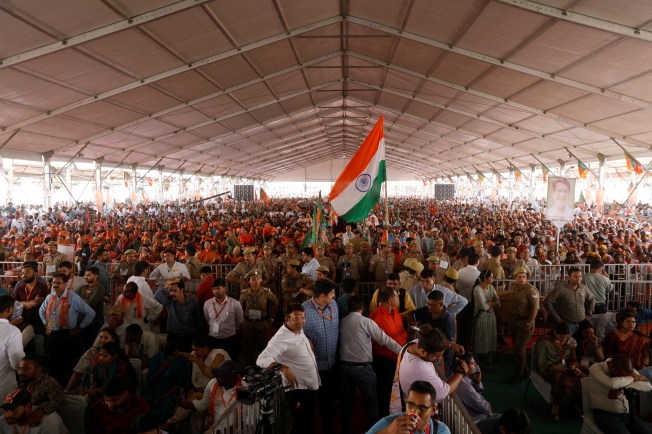From April 19 until June 1, India will hold the world’s biggest election, which the Hindu nationalist Bharatiya Janata Party (BJP) of Prime Minister Narendra Modi is expected to win.
It’s a critical time for journalists. Earlier this year, CPJ compiled safety resources for journalists covering India’s elections, empowering them to tackle a range of digital, physical, and psychological risks.
Reporters and editors from across India spoke to CPJ about their plans to cover these historic parliamentary elections in a difficult environment for the media, which has seen critical websites censored, prominent editors quit, and independent outlets bought by politically-connected conglomerates, while divisive content has grown in popularity.
“Indian media is very, very polarized now,” said Dhanya Rajendran, editor-in-chief of The News Minute. “We are seeing a clear divide in the Indian media, where one side is continuously egging the government to go arrest people from the other side, to take action, branding them as ‘anti-national.’”
Read more insights from journalists covering the election.
- CPJ calls for probe of attack injuring eight journalists at Gaza hospital; CPJ seeks probe of Israeli attack on TV journalists wearing press insignia
- CPJ condemns expulsion of journalist Farid Alilat on arrival at Algiers airport
- Argentine journalist gets death threats after reporting on illegal medication sales
- Mali’s media regulator bans outlets from covering political groups
- Malawian journalist Macmillan Mhone facing false news, extortion charges
- Togo expels French journalist Thomas Dietrich, suspends foreign accreditations
- Police investigate Nigeria’s Foundation for Investigative Journalism after corruption coverage
- Russia orders exiled journalist Mikhail Zygar’s arrest in absentia
- Ukrainian journalists Heorhiy Levchenko, Anatasiya Glukhovska missing since Russia detention
Spotlight
Yesterday, the New York Times published a guest opinion from CPJ’s CEO Jodie Ginsberg, calling for unfettered media access to Gaza amid the ongoing Israel-Gaza war.
“The refusal to allow international media to cover Gaza from the inside is just one element of a growing censorship regime that leaves a vacuum for propaganda, mis- and disinformation, and claims and counterclaims that are extraordinarily difficult to verify independently,” stated Ginsberg in the piece.
Read more about why media access to Gaza is so critical six months into the war.
Separately, this week marked one year since fighting erupted in Sudan, where local journalists quickly ran into difficulties reporting on the conflict roiling their country.
The war has killed 14,000 people and displaced millions, while journalists continue their struggle to cover its devastating impact.
Read more about how Sudan’s civil war continues to impact the press.
What we are reading (and listening to)
- Standing up to corruption and violence — Jaemark Tordecilla, Nieman Reports
- ‘The city is a jail’: Haitian journalists get word out about gang violence — Tom Phillips and Etienne Côté-Paluck, The Guardian
- China’s strategy to shape Africa’s media space — Paul Nantulya, Africa Center for Strategic Studies
- How Shabaab cut short my journalism career and made me an asylum seeker — Aggrey Mutambo, Nation Media Group
- Protect democracy by defending its defenders — Nicholas Miller, Just Security
